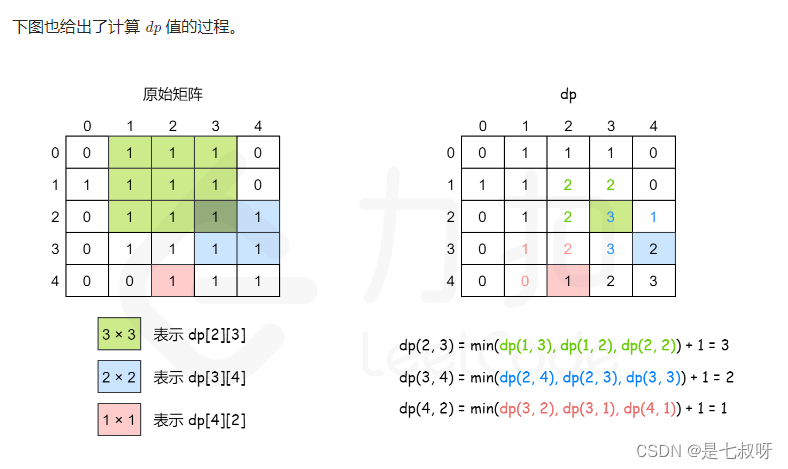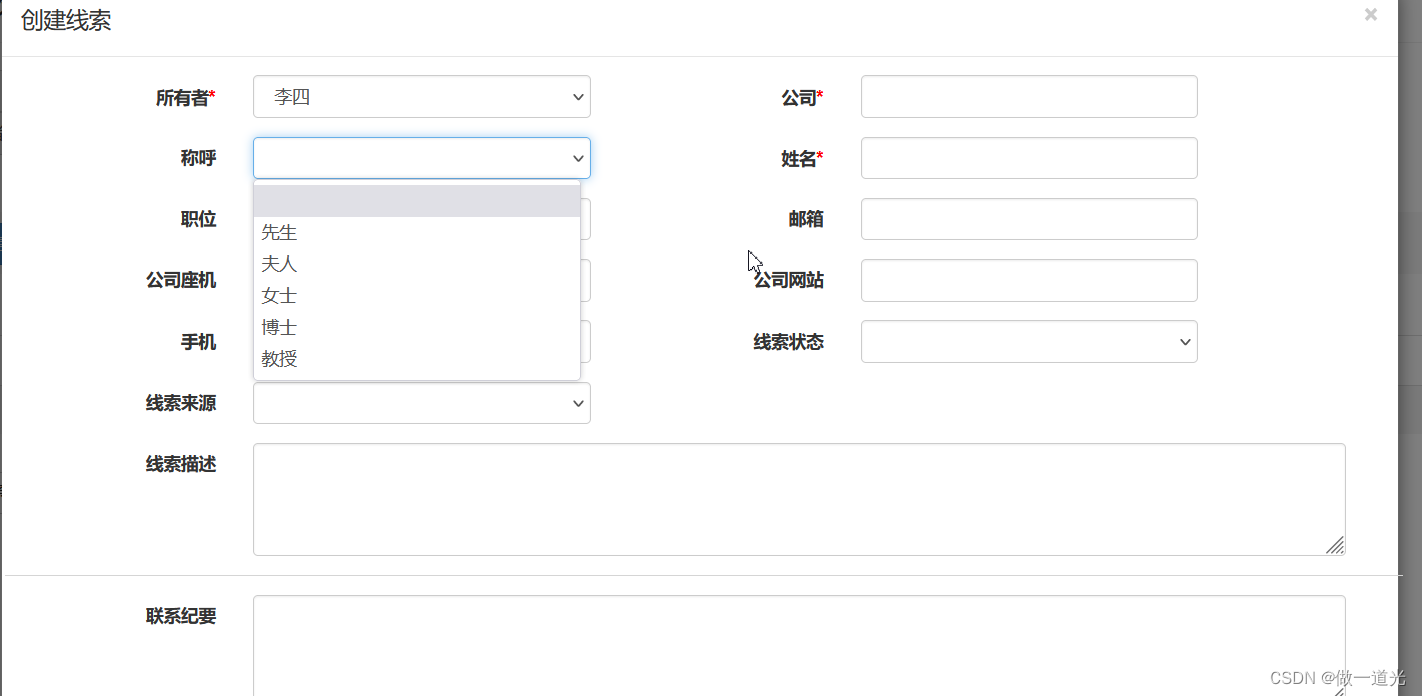当前位置:网站首页>URLEncode. The difference between encode (string, string) and new string (byte[], string)
URLEncode. The difference between encode (string, string) and new string (byte[], string)
2022-07-22 01:56:00 【X ⑧】
URLEncode.encode(String,String) and new String(byte[],String) The difference between
The problem I have : Export Excel Put the form in HttpServletResponse When returning from , Use URLEncode.encode(String,String) Handle file name ;
and Local export Excel Use new String(byte[],String) Process filename ; What is the difference between the two ?
URLEncode.encode(String,String)
Parameters : The first parameter is : To transcode
character string, The second parameter is : wantThe name of the specified encoding( The compiler will prompt you for any mistakes ).String according to the specified encoding
transcodingbecome URL code .URL Coding is actually : One
character ASCII The hexadecimal of the code. For any non ASCII Special characters for ( Such as Chinese characters 、&、%、 Space 、=) To deal with , WithPercent sign % Add hexadecimal codeExpress .Such as ‘%’ use URL The code is expressed as :‘%25’,
Space Expressed as :'+'( Special symbols ),‘%25’、‘%E6’、‘%5C’ It's all one URL Encoded characters .
@Test
void text1() {
try {
System.out.println(URLEncoder.encode(" ", "UTF-8")); // +
System.out.println(URLEncoder.encode("!", "UTF-8"));// %EF%BC%81
System.out.println(URLEncoder.encode("!", "UTF-8")); // %21
System.out.println(URLEncoder.encode("/", "UTF-8")); // %2F
System.out.println(URLEncoder.encode("\\", "UTF-8"));// %5C
System.out.println(URLEncoder.encode("%", "UTF-8")); // %25
} catch (UnsupportedEncodingException e) {
e.printStackTrace();
}
}
- For ordinary English letters, the result of transcoding is unchanged , Or the original character ; and Chinese characters stay
UTF-8The middle isThree bytes, one Chinese characterTo store the , After transcoding URL Coding is based onThree URL characterTo express .
@Test
void text2() {
try {
System.out.println(URLEncoder.encode(" I ", "UTF-8"));// %E6%88%91
System.out.println(URLEncoder.encode(" yes ", "UTF-8"));// %E6%98%AF
System.out.println(URLEncoder.encode(" in ", "UTF-8"));// %E4%B8%AD
System.out.println(URLEncoder.encode(" countries ", "UTF-8"));// %E5%9B%BD
System.out.println(URLEncoder.encode(" people ", "UTF-8"));// %E4%BA%BA
System.out.println(Arrays.toString(" I ".getBytes(StandardCharsets.UTF_8)));// [-26, -120, -111]
System.out.println(" I ".getBytes(StandardCharsets.UTF_8).length); // 3
System.out.println(URLEncoder.encode(" I ", "UTF-8").length());// 9
} catch (UnsupportedEncodingException e) {
e.printStackTrace();
}
}
@Test
void text3() {
String str = " I'm Chinese !";
String str1 = "I am Chinese!";
String str2 = " I'm Chinese !";
String str3 = "I am Chinese!";
try {
System.out.println(URLEncoder.encode(str, "UTF-8")); // %E6%88%91%E6%98%AF%E4%B8%AD%E5%9B%BD%E4%BA%BA%EF%BC%81
System.out.println(URLEncoder.encode(str1, "UTF-8"));// I+am+Chinese%EF%BC%81
System.out.println(URLEncoder.encode(str2, "UTF-8"));// %E6%88%91%E6%98%AF%E4%B8%AD%E5%9B%BD%E4%BA%BA%21
System.out.println(URLEncoder.encode(str3, "UTF-8"));// I+am+Chinese%21
System.out.println(new String(str.getBytes(), StandardCharsets.UTF_8)); // I'm Chinese !
System.out.println(new String(str1.getBytes(), StandardCharsets.UTF_8));// I am Chinese!
System.out.println(new String(str2.getBytes(), StandardCharsets.UTF_8));// I'm Chinese !
System.out.println(new String(str3.getBytes(), StandardCharsets.UTF_8));// I am Chinese!
} catch (UnsupportedEncodingException e) {
e.printStackTrace();
}
}
new String(byte[],String)
- Parameters : The first parameter is : Bytecode array ; The second parameter is : want
The name of the specified encoding, Recommended StandardCharsets Class to represent , Such asStandardCharsets.UTF_8 namely "UTF-8".
@Test
void text4() {
String str = " I'm Chinese !";
String str1 = "I am Chinese!";
String str2 = " I'm Chinese !";
String str3 = "I am Chinese!";
System.out.println(new String(str.getBytes(), StandardCharsets.UTF_8)); // I'm Chinese !
System.out.println(new String(str1.getBytes(), StandardCharsets.UTF_8));// I am Chinese!
System.out.println(new String(str2.getBytes(), StandardCharsets.UTF_8));// I'm Chinese !
System.out.println(new String(str3.getBytes(), StandardCharsets.UTF_8));// I am Chinese!
}
- getBytes(String): be used for
Converts a string into a bytecode array according to the specified encoding, The parameter is the same as the second parameter of the method above ,The name of the specified encoding, When there is no parameter , Applicable to the default character set of the platform code .
System.out.println(Arrays.toString(" I ".getBytes(StandardCharsets.UTF_8)));// [-26, -120, -111]
System.out.println(Arrays.toString(" I ".getBytes()));// [-26, -120, -111]
- Encode bytecode as specified
Regenerate a string.
summary
The results are different:new String(byte[],String) The result is still a string ; and URLEncode.encode(String,String) The result is URL Coding string , Just to String Fashion show .URL code : yes
A browser used to package form input , Text format transmitted between server and browser. Commonly used to HttpServletResponse Return the filename ( You need to put HttpServletResponse As a file output stream ).new String(byte[],String) The method is to
Change the string encoding.URLEncode.encode(String,String) The method is to
Transcoding a string.
( Second engine ) If it helps you , Like it !!
边栏推荐
- Unity 之UGUI Text组件坚排显示(改进)
- Multiple knapsack problem code template
- 如何在 Kubernetes 集群中集成 Kata
- [paper reading] deep video analog detection: opportunities and challenges
- 如何用Go实现一个异步网络库?
- Oracle中对空字符串的判断
- The second financial article failed
- Learning path PHP -- thinkphp5 + windows server to achieve scheduled tasks
- Leetcode 206反转链表、3无重复字符的最长子串、912排序数组(快排)、215数组中的第k个最大元素、53最大子数组和、152乘积最大子数组
- Est - ce que cela signifie que le binlog de MySQL est activé?
猜你喜欢

一文深入浅出理解国产开源木兰许可系列协议
![[paper reading] deep video analog detection: opportunities and challenges](/img/bf/7e4563aea2608c42fe4e8213e151a9.png)
[paper reading] deep video analog detection: opportunities and challenges

Dynamic rules - array compression optimization

Leetcode 48旋转图像(水平+主对角线)、Leetcode 221最大正方形(动态规划dp表示以ij为右下角的答案值)、Leetcode 240搜索二维矩阵II(排除行列法)

Easyexcel realizes file upload - batch insert file download

c#利用resx manager 切换中英文

动态递归之严格位置依赖优化

xshell连接时显示“服务器发送了一个意外的数据包。received:3,expected:20

将华为路由器做成ftp服务器(实现上传下载功能)

第3章业务功能开发(实现显示线索主页面,并查询表单各个下拉框数据)
随机推荐
BGP—— 边界网关协议
Major breakthrough! Successful development of the first domestic scientific computing software
QT大杂烩(总)
2022-7-17 FTP client project implementation - Summary
解决GD32F207串口可以接收但发送00的问题
Group knapsack problem
TinyMCE removes the P tag added by default in the editor line feed
3. Project structure of source code analysis of Nacos configuration center
基于php开发的学生成绩管理系统
huawei设置使用账号密码登录
Jupyterhub configuring go environment
YouTube “标签产品” 试点项目上线
[深度学习学习笔记]注意力机制-Attentional mechanism
对比市面淘宝短视频工具/软件,分析淘宝短视频未来趋势
CRM concept: understand the concepts of leads, prospect, MQL and SQL
URLEncode.encode(String,String) 和 new String(byte[],String) 的区别
分组背包问题
C getting started series (XXVI) -- assemblies and namespaces
【FreeRTOS】10 事件标志组
SparkSql中的窗口函数